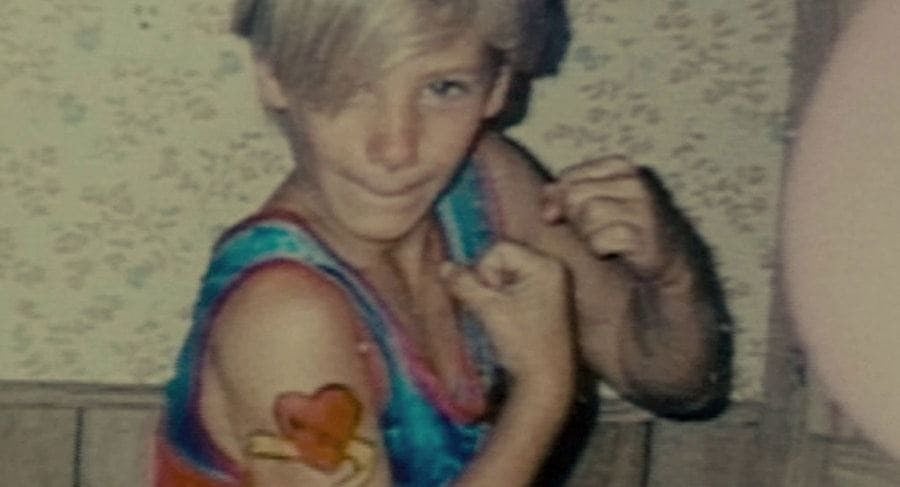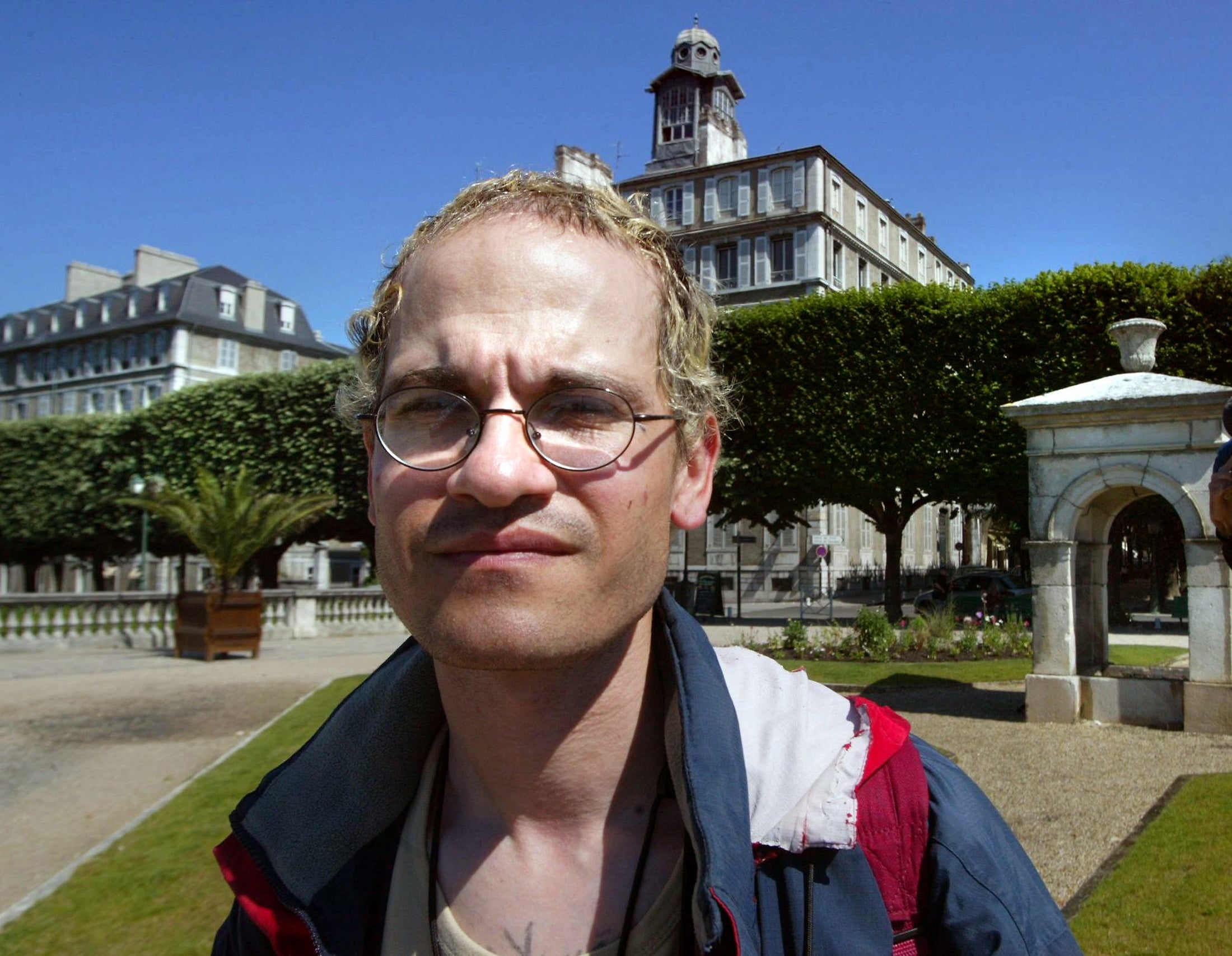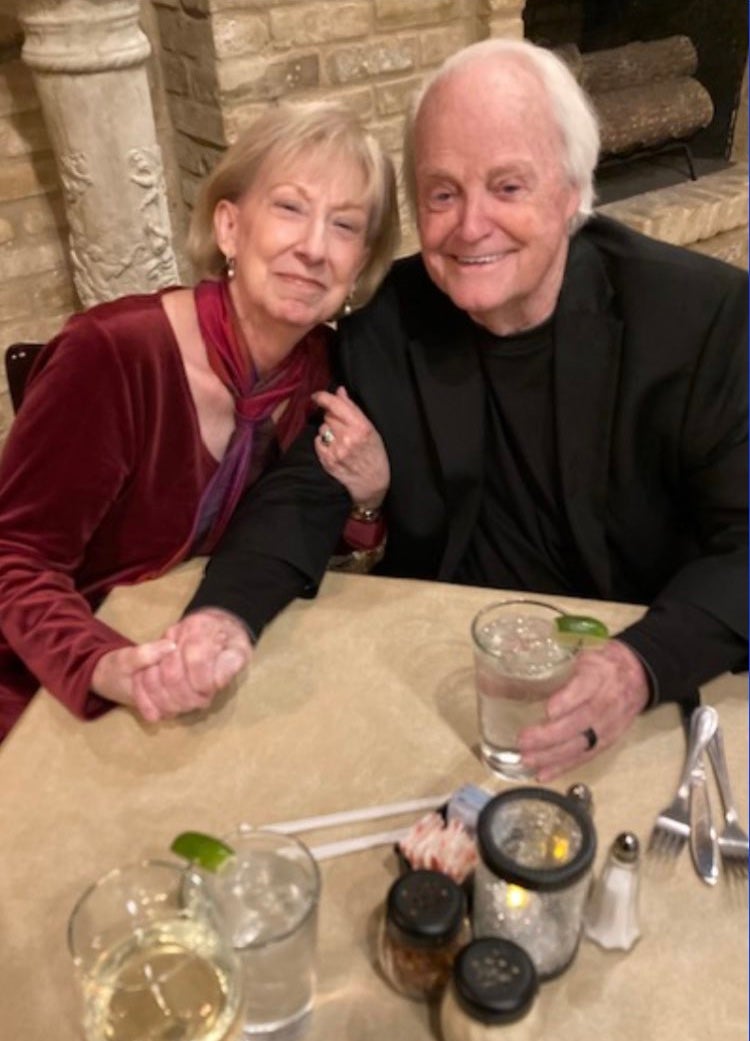A French serial imposter convinced everyone he was a missing Texas teen. This PI convinced him to confess
Three years after Nicholas Barclay, 13, vanished from San Antonio, law enforcement and his family believed they’d found the teen in Spain and returned him to his normal Texas life. Then a PI with a penchant for suspenders took “Nicholas” out for hotcakes - and got the French fraudster to confess. But that was just the tip of the iceberg, writes Sheila Flynn

Your support helps us to tell the story
From reproductive rights to climate change to Big Tech, The Independent is on the ground when the story is developing. Whether it's investigating the financials of Elon Musk's pro-Trump PAC or producing our latest documentary, 'The A Word', which shines a light on the American women fighting for reproductive rights, we know how important it is to parse out the facts from the messaging.
At such a critical moment in US history, we need reporters on the ground. Your donation allows us to keep sending journalists to speak to both sides of the story.
The Independent is trusted by Americans across the entire political spectrum. And unlike many other quality news outlets, we choose not to lock Americans out of our reporting and analysis with paywalls. We believe quality journalism should be available to everyone, paid for by those who can afford it.
Your support makes all the difference.It wasn’t the first time the mismatched pair had eaten hotcakes together at the highway diner, an ageing private investigator with Texas good ol’ boy charm and a teen who’d made global headlines after vanishing from his mother’s San Antonio home – then resurfacing years later in Spain with a different accent and different eye colour.
It was March 1998, and PI Charlie Parker stared across the table at the person calling himself “Nicholas Barclay”. He didn’t believe for a second that his dining companion was the boy who’d disappeared from Texas in 1994, and he’d spent months trying to prove it, not only tailing the teen but also repeatedly pressing him for information over meals at the diner.
This meal of hotcakes was different. This time Mr Parker’s wife was waiting down the road with the detective’s gun. This time law enforcement was hanging on tenterhooks for answers. And this time “Nicholas” finally acquiesced.
“My name is Frederic Bourdin,” he told Mr Parker. “And I’m wanted by Interpol.”
That was nearly 25 years ago, and Mr Parker still sounds incredulous as he tells The Independent about the day that a French serial fraudster confessed to him that he’d been impersonating a missing American boy. The rest of the world remains equally incredulous; the recent re-release of a documentary about the case set social media ablaze with astonished disbelief.
Bourdin had duped law enforcement on two continents and moved in with Nicholas’ relatives in San Antonio, and his reasons for admitting his deception added an even darker turn to the bonkers tale. The fraudster believed Nicholas had met a nefarious end and wasn’t coming back, and he feared for his own life after usurping Nicholas’s. Mr Parker is also convinced the missing boy is dead and has even dug – unsuccessfully – for a suspected burial site.
The fate of Nicholas remains unknown, and the fraudster has moved on – to more fraud and a family. But the unanswered questions and sheer unbelievability of the bizarre case have marked it as one of the most creepily captivating capers in recent memory.
“There are not that many true stories which are so, so unusual and so compelling,” Bart Layton, director of 2012’s The Imposter, told The Independent following the documentary’s re-release on Netflix UK. He and Mr Parker were unaware the film was being added to the streaming platform, and the company has not responded to The Independent about when - or whether - the film may be available in the US. It can currently be viewed on other streaming platforms in the US, including Amazon Prime.
Mr Parker - who ran a supply business for years with his wife before they turned their amateur interest in detective work into a career - has been speaking to high school classes, podcasts and anyone fascinated by the case in the wake of renewed interest.
If he hadn’t zeroed in on Bourdin’s ears, of all things, none of this may have happened. But it all dates back to June 1994, when Nicholas Barclay vanished from San Antonio.
The 13-year-old wasn’t the type of milk carton kid to make enduring national headlines when he disappeared; he was no stranger to trouble or running away, and his sister, Carrie, describes him as streetwise in The Imposter. He’d been living with his mother, Beverly Dollarhide, and his older brother, Jason, who’d moved back home; when he called for a ride home after a basketball game on the day he disappeared, Jason told him to walk.
Nicholas has never been seen again.

His picture was spotted three years later, however, by a serial conman in police custody in Spain. An unidentified individual had been found near a train station in Linares, about 200 miles south of Madrid, seemingly young, scared and unwilling to share his name. But it was all acting; the individual was not, in fact, a teenager but instead a 23-year-old cunning French national with a history of stealing or fabricating identities.
Bourdin, who had a long rap sheet, feared fingerprinting and prison if he didn’t give answers to Spanish authorities, so he concocted a story. He said he was American and had run away from home, then begged to be allowed to contact his family himself. Because of the time difference, he convinced the Linares cops to let him stay in an office overnight, where he phoned not his relatives but American police stations. Pretending to be an officer himself, he said an American kid had turned up in Spain and was believed to be a missing US teen; he was eventually given the number for the National Center for Missing and Exploited Children, which raised Nicholas Barclay as a possibility and faxed a photo from several years earlier.
Bourdin looked at it and pounced, bolstered by the knowledge that Nicholas had been missing for several years, which would “guarantee one thing - there will be a change,” he says in the documentary.
“If there is a change, there is doubt,” the fraudster says coolly, looking into the camera. “If there is doubt, then I’ve got a chance. Something in my head decided that I could do it -- that I had to try.”
He dyed his hair blonde and got another young girl in custody to tattoo him with markings matching Nicholas’ ink. He explained away his appearance, eye colour change and accent by blaming a paedophile ring, claiming they’d abducted, tortured and abused him. He pulled the wool over the eyes of almost everyone, including his older sister, who flew to Spain to bring him home.
But he didn’t fool Charlie Parker, who visited Nicholas’ family home with a TV crew when news of the improbable story broke.
“He was creepy,” Mr Parker tells The Independent. “He was. But I just sat in the chair, and ... I was fortunate enough that there was a picture on the right there of the real Nicholas Barclay. And he had blueish gray eyes, and ... it didn’t gel.”
He told the TV producer with him to zoom in on the ears of the person sitting before them.
“Ears are like fingerprints, in a way - not like fingerprints, but they’re damn close,” he says. “What happened is that immediately I knew that I had an imposter, I mean right off the bat. And so I was argumentative with everybody, and I got in a little trouble with the FBI ... they thought he was who he said he was.
“That’s when they gave me so much heat. They said, ‘You’re going down the wrong path.’ And they threatened me with obstruction of justice. So I came home, I met with my wife, I showed her the ears, I showed all this stuff.

“And I said, ‘Honey, we’ve gotta go for it. We know this is not the guy.’ And it was the biggest case I would ever have.”
He called and told the boy’s mother, but Bourdin phoned him back and argued that the detective was wrong, that US authorities had issued him a passport based on their sincere belief in his story.
“I said, ‘I know one thing: You’re not Nicholas Barclay, and I’m gonna stay with you,’” Mr Parker tells The Independent. “And we developed a strange relationship.”
He didn’t know who the imposter was or what his motives could possibly be - was he a spy? The PI was apprehensive and skeptical as he pursued the case on his own time and dime, but he was also obsessively, meticulously dogged.
“First we used covert surveillance to follow him on a road, buses, and he did all kinds of things. He didn’t have a car. And then we used overt - in other words, we just let him see us. And so he came up to me one day and he said, ‘You’re still around.’ I said, ‘You bet,’ and I said, ‘Man, I know you’re not Nicholas Barclay, and I’m staying with you no matter what’ ... and just after that, he began to call me.
“And I think what was happening is, he was finding out that there wouldn’t be any return of Nicholas Barclay, you follow me? And he was starting to get scared himself. But I met with him once a week, we went and ate hotcakes at the same place where we caught him.”
Bourdin says in the film that he admitted the fraud because he felt that some people close to Nicholas knew he was faking - and were only going along with the ruse because they were sure the missing boy was dead. His devastated family members - victimised repeatedly - have always maintained they have no idea what happened to Nicholas. His brother Jason died of a drug overdose shortly after Bourdin’s arrest.
The fraudster also shares his own alleged backstory in the film, detailing how a loveless family history may have contributed for his need to impersonate others. Six months after his diner confession to Mr Parker, Bourdin pleaded guilty to passport fraud and perjury in Texas and was imprisoned for six years before being deported back to Europe (where he again began pulling similar scams).

Director Layton got a firsthand taste of Bourdin’s wily ways when he brought the fraudster to London to interview him for The Imposter.
“I spent this strange day with him,” he tells The Independent. “And when I went to put him back on the train, at the end of the day ... I remember feeling like I needed to escort him back to station because he felt - even though he is older than me - he had this kind of childlike quality to him that made me feel like I needed to kind of put him safely back on his train.
“And then after I walked away, having heard him tell his story. I remember feeling really deeply sorry for him -- feeling really like, poor guy, he never had a childhood. You know, maybe he was justified in trying to sort of steal one back, kind of thing. And then I sort of remember stopping in my tracks in Kings Cross Station and thinking, ‘Wow, I’ve just been conned. He’s just done to me exactly what he’s done to everyone, which is to tell this very sympathy-inducing sob story.’
“That was the moment when I realised, that’s how to make the film - to allow him to do to the audience exactly what he has done,” Mr Layton tells The Independent. “So it seemed to me like a very different way of trying to make that film and tell that story, because it seemed that the story was so outlandish and so wildly far fetched that, unless you really experienced him doing to you, the viewer, what he did to everyone that he came into contact with, you would really struggle to understand how he managed to do what he did.”
Mr Parker still marvels at Bourdin’s chameleon-like abilities.
“Where he ought to be is the CIA,” he tells The Independent. “That’s where he ought to be.”
“I could never see it as anything other than a documentary,” says Mr Layton, whose company has gone on to make more jaw-dropping projects like The Tinder Swindler. “When [The Imposter] came out, when it premiered at Sundance, there was a whole flurry of people trying to buy the movie rights for the dramatised version. And it’s interesting that no one’s ever really succeeded in adapting it.”
He continues: “People love to use that expression ‘stranger than fiction,’ but ... once you do fictionalize it, it becomes almost unbelievable, in a way. One of the things that documentaries can do is, you get to see the whites of people’s eyes, the real people, and you get to sort of try to understand what their motivations were, and what was going through their minds, and what they’re telling you is true and what might not be true.”
Mr Layton was glad he immediately shot interviews with Bourdin - labelling him “not entirely trustworthy” in a wry understatement - and never got the opportunity to go back to him with more questions, he says.
The fraudster almost immediately got up to his old tricks upon his return to Europe, impersonating other teens and, again, landing behind bars. He married a French woman in 2007 and had five children, according to reports, though later social media posts indicated the marriage may have fallen apart. In a 2008 New Yorker profile, Bourdin complained of being “too famous.” He’s bragged of assuming 500 identities.
“I tell you one thing, he is absolutely fearless,” Mr Parker tells The Independent. “And he wasn’t afraid of me, because ... I’m a character. He knew the word ‘Colombo.’ He would always refer to me as Colombo - and actually, Colombo was smarter than people thought, if you watch it.
“But anyway, he would call me Colombo and different things like that, but he wasn’t really afraid of me. But he knew I would eventually get him. And I think today he would admit that that’s what happened.”
Now in his 80s, the PI hasn’t slowed down and is still working cases - and getting calls from clients who know about The Imposter. It was, as he says, the biggest case he’d ever have, but so many elements of the underlying mystery remain to this day.
”I asked Beverly if I could go into [Nicholas’] bedroom and look after they arrested him and took him off,” Mr Parker tells The Independent. “And she let me do that, and I had a real thing happen to me. I just looked in the closet, and he had the two pairs of jeans and two shirts ... and he had nothing. He had accomplished nothing, stolen nothing, wasn't a traitor, wasn't any kind of spy like ... I thought.
“And I thought, ‘Oh my God, what have I done?’ You know, he actually was a guy trying to find a home.”
Subscribe to Independent Premium to bookmark this article
Want to bookmark your favourite articles and stories to read or reference later? Start your Independent Premium subscription today.


Join our commenting forum
Join thought-provoking conversations, follow other Independent readers and see their replies
Comments